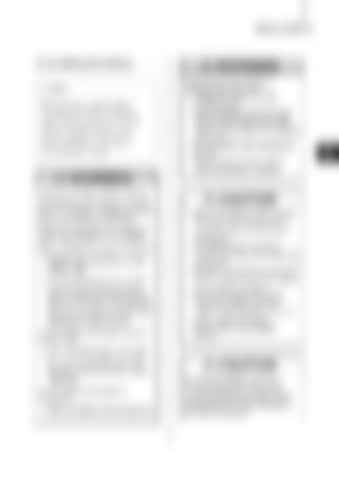INSTALLATION 31
6. Installing the battery Note Minimum recommended battery : 12V, 70AH (800 Marine Cranking Amps (MCA) or 650 Cold Cranking Amps (CCA)) Specifications and features of batteries vary among the manufacturers. Consult the manufacturer for details.
!
�������
Battery electrolyte contains sulfuric acid and thus is hazardous, causing a burn if it comes in contact with your skin, or poisonous if swallowed. KEEP BATTERY AND ELECTROLYTE AWAY FROM REACH OF CHILDREN When handling the battery, be sure to: • Read all warnings shown on the battery case • Prevent electrolyte from coming in contact with any part of your body. Contact can cause serious burn or, if it comes in contact with your eye, loss of sight. Use safety glasses and rubber gloves. In case battery electrolyte comes in contact with:
!
�������
Battery generates explosive hydrogen gas. Be sure to: • Charge the battery in a wellventilated place. • Place the battery away from any source of fire, sparks and open flames such as burners or welding equipment. • Do not smoke when handling the battery. • Do not smoke near the battery when the battery is charging.
!
3
�������
• Make sure that the battery cords do not get stuck between the outboard motor and boat when turning, etc. • The starter motor may fail to operate if the cords are incorrectly connected. • Be sure to correctly connect the (+) and (−) cords. If not, the charging system will be damaged. • Do not disconnect the battery cords from battery while the engine is operating, the electrical parts could be damaged. • Always use a fully charged battery.
• Skin, flush thoroughly with water. • Eye, flush thoroughly with water, and then seek immediate medical treatment. In case battery electrolyte is swallowed: • Seek immediate medical treatment.
M60-140_E_body_110201.indd 31
!
�������
Do not use a battery that is not recommended. Use of a battery not recommended can lead to poor performance of, and/or damage to, the electrical system.
11.2.7 3:23:38 PM



